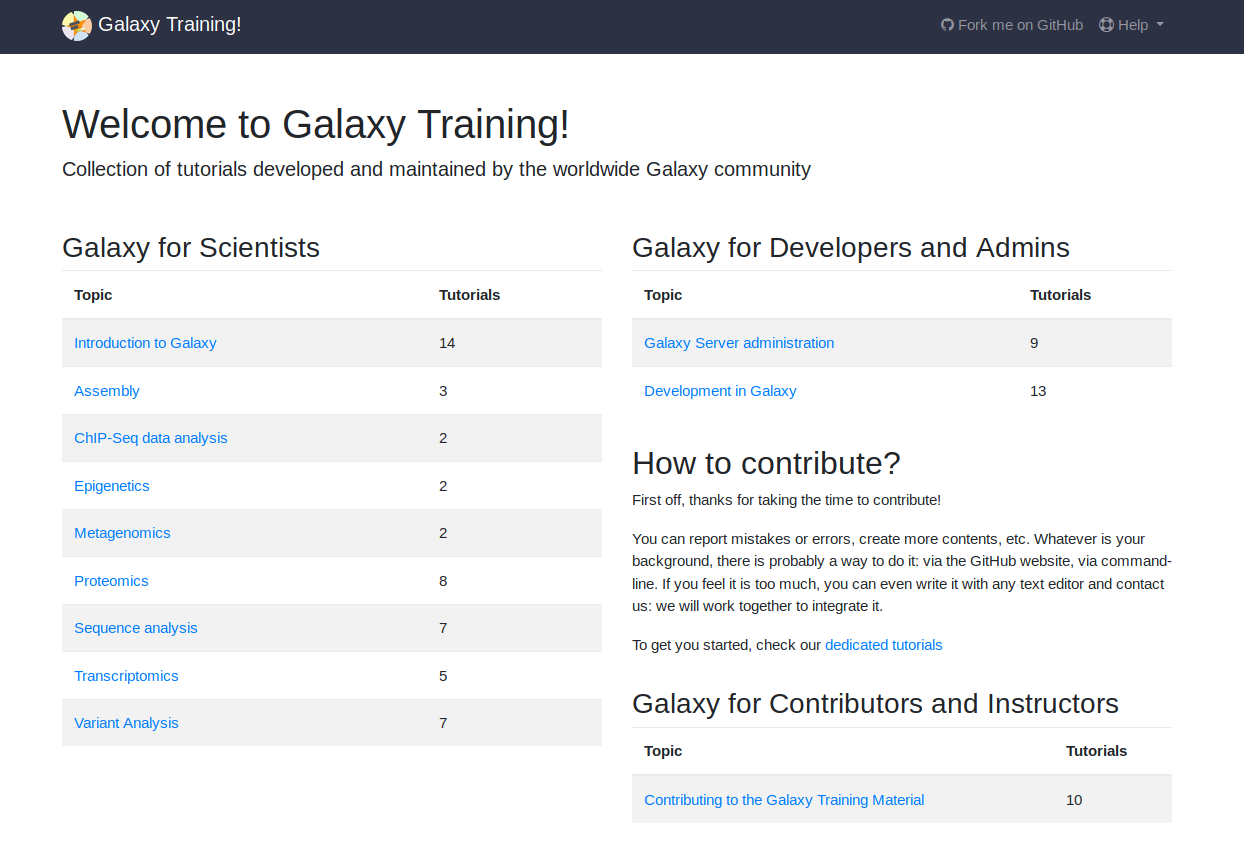Galaxy Freiburg
The homepage of the Freiburg Galaxy community
Galaxy is an open-source platform for FAIR data analysis that enables users to:
- use tools from various domains (that can be plugged into workflows) through its graphical web interface.
- run code in interactive environments (RStudio, Jupyter...) along with other tools or workflows.
- manage data by sharing and publishing results, workflows, and visualizations.
- ensure reproducibility by capturing the necessary information to repeat and understand data analyses.
The Galaxy Community is actively involved in helping the ecosystem improve and sharing scientific discoveries.
News
Ten Common Misconceptions About Galaxy (And Why They're Wrong!)
We are thrilled to announce that 'Ten Common Misconceptions About Galaxy (And Why They Are Wrong!)' has just been published in PLOS Computational Biology! This paper is the result of passionate discussions, collaborative debates, and a shared commitment to clarifying what Galaxy truly is—and what it can do. Whether you are a longtime Galaxy user or new to the platform, this paper will challenge assumptions and highlight Galaxy's versatility, scalability, and impact across disciplines.
Bringing Climate, Ecology, and Earth System Science Together
Join Our Galaxy Earth-Climate-Ecology Room
Weekly summary of activity across 150+ galaxyproject repositories
Weekly summary of activity across 150+ galaxyproject repositories
Connecting Humanities Data: Analyzing DaSCH data on Galaxy
We're excited to announce the collaboration between DaSCH, the Swiss National Data and Service Center for the Humanities, and the data analysis platform Galaxy.
Events
Mar 5 - Mar 6Galaxy Metagenome Training Course 2026
Join us online in the 2026 Metagenome Training Course
Mar 9 - Mar 13Workshop on high-throughput sequencing data analysis with Galaxy
This course introduces scientists to the data analysis platform Galaxy
May 4 - May 8European Geosciences Union (EGU) 2026
A Data Terra session to the European Geoscience Union
Our services
The Freiburg Galaxy Team is offering several services to enable reproducible and accessible research for everyone:
Training
We regularly provide workshops.
But we cannot always meet capacity, so we've put all of our training materials online. This has become a community project with people from all over the world contributing training materials.
Topics include: variant analysis, transcriptomics, metagenomics, epigenetics, and many more!

Acknowledgements
We are aiming to maintain high competency and provide high-quality data analysis services to all our Galaxy users.
Therefore, we request that you acknowledge this service by including the members of the Freiburg Galaxy Team as co-authors if they have made a significant intellectual and/or organizational contribution to the work described (conceptualization, design, data analysis, data interpretation and/or input into drafting, revising or writing any portion of the manuscript).
Individuals who have contributed to the project, but whose contributions do not rise to the level justifying authorship, can be recognized in the acknowledgements section of the manuscript as follows:
The authors acknowledge the support of the Freiburg Galaxy Team: Person X and Prof. Rolf Backofen, Bioinformatics, University of Freiburg, Germany funded by Collaborative Research Centre 992 Medical Epigenetics (DFG grant SFB 992/1 2012) and the German Federal Ministry of Education and Research (BMBF grant 031 A538A de.NBI-RBC).
Additional funding of projects and/or provision of material expenses are welcome as well, to help support our growing Galaxy community in Freiburg.